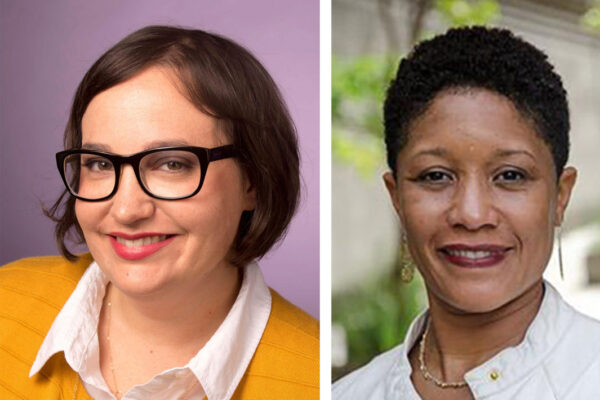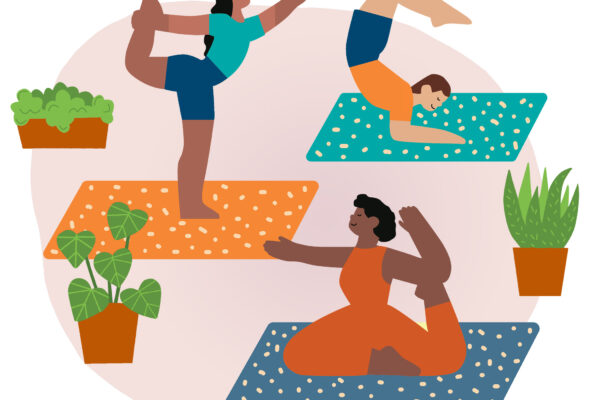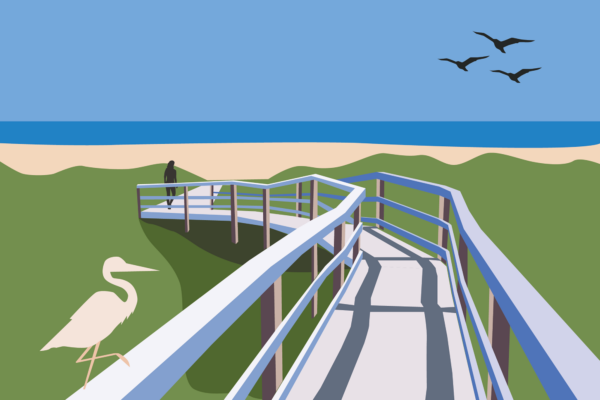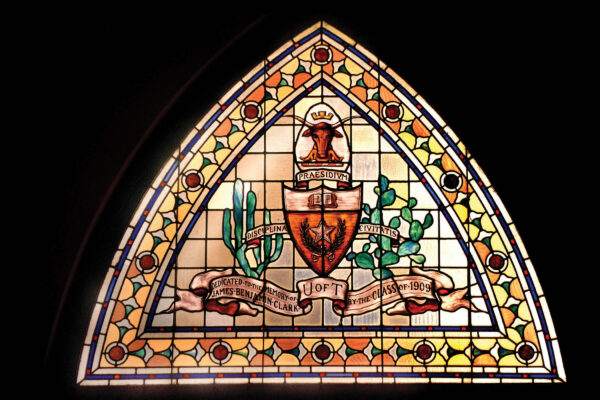The explosive popularity of podcasts means there’s something for everyone, whether you’re a history buff, an amateur detective, a music maven or a political junkie. But with so many choices, it can be hard to know where to start. How about trying some podcasts made by staff and faculty members at The University of Texas? These two series will help you pass some time whether you’re in the car with your kids or looking to expand your mind during a break from your work-at-home routine.
Cite Black Women
With the “Cite Black Women” podcast, host and co-producer Christen Smith highlights Black women’s intellectual contributions and challenges the hierarchy of knowledge in academia. The podcast is just one arm of the Cite Black Women campaign, which Smith founded in 2017.
Smith, an associate professor of African and African diaspora studies and anthropology, has been teaching at The University of Texas at Austin for 12 years. She describes herself as a “Black feminist anthropologist”; her book “Afro-Paradise: Blackness, Violence and Performance in Brazil” examines the impact of police violence in Brazil and the Americas. Smith’s direct experiences with being rendered invisible influenced the creation of Cite Black Women.
“I was sitting in the audience (at a conference) looking at somebody’s presentation, and they had paraphrased parts of my book onto slides and didn’t cite me,” Smith says. “They never acknowledged my work at all. Obviously, I was furious. I had been the victim of plagiarism and the appropriation of my work and thoughts without acknowledgement before. I was upset, and I called one of my best friends and said, ‘The next time I go to a conference, I’m going to make shirts that say “Cite Black women.” I really want to see someone not cite me while they’re looking at me in my eyes with the shirt on.’”
Smith followed through, and the shirts were a hit. She started selling them at the National Women’s Studies Association meeting in 2017 and sold out of her supply at the American Anthropological Association meeting later that year.
Cite Black Women’s Twitter, Facebook and Instagram pages grew out of people asking for more ways to connect with the movement. The same is true for the podcast.
“The podcast was something that emerged, just like everything in this project, from people that love the campaign and want more,” Smith says. “The first few (episodes) I did were with different Black feminist scholars and people that I know and respect that have influenced my way of thinking about citational practice.”
Smith has been focusing on increasing Black women’s presence on university syllabuses. Efforts to increase diversity on college campuses have often aimed to increase the number of students, staff members and faculty members of color. Smith wants scholars to consider the diversity of course materials.
Smith says she thinks that reevaluating university syllabuses is an important step to deepening diversity in academia.
“People of color have been incorporated into the university, but for many, many years, our incorporation into the university has been predicated on our mastery of white knowledge. You can have a diverse class, a diverse class topic or even a diverse staff or faculty member, but if the syllabus is made up of mostly white men or mostly men and there are no Black women on the syllabus, what exactly are you saying in terms of who gets the right to speak?”
While “Cite Black Women” focuses on amplifying Black women’s voices in academia, it also challenges people to rethink how they interact with Black women outside the classroom.
“When we say, ‘Incorporate Black women into the core of your syllabus,’ we’re not talking about the syllabus just as a thing that you hand out in class,” Smith says. “We’re talking about how you can center Black women’s thoughts in your daily routine. How can you make a space for Black women to speak? How can you create a space for Black women to breathe? Anybody can do that. Part of what we have to realize is citing Black women is caring for Black women. It’s about acknowledging us. It’s about honoring us. Those are basic things.”
Tumble: A Science Podcast
Sara Robberson Lentz says she has loved science since she was a child, and she wants to help others see its beauty.
Lentz is the managing editor for University Communications at The University of Texas at Austin. Within this role, she is responsible for managing multimedia content for UT Austin’s digital channels, special web projects and social media. But Lentz also produces media outside of work.
In 2015, she and two co-creators started “Tumble: A Science Podcast.” Through discussions with researchers and exploring recent discoveries, their podcast aims to demystify science for kids. Lindsay Patterson produces the podcast and co-hosts with Marshall Escamilla, who creates original music for the show. Lentz edits each episode and is head of partnerships, a role in which she works to develop ties with research organizations that also seek to promote STEM literacy and science advocacy.
“It is really hard to teach adults new things, especially when they think it involves ‘belief,’” reads the show’s manifesto. “That’s why our target audience is children. While we hope to inspire curiosity and discovery through accessible storytelling, our show isn’t about preparing kids to be scientists or engineers. We hope to prepare kids to be smart participants in society who understand that science is one of the most powerful tools we have to shape our future.”
“Tumble” won the top award in the children’s science news category in the 2019 AAAS Kavli Science Journalism Awards, and Lentz says the podcast now averages more than 180,000 monthly downloads.
Both “Tumble” and her job at UT allow Lentz to merge her passions for media and science.
“I get to interview researchers all the time who are at the top in their field about their work at the university,” Lentz says. “Every time I get to talk to a faculty member, it’s the best part of my day because I feel like I get to learn. It’s like I’m in their class, but I don’t have to do any homework. Then I get to tell people about it.”
Lentz’s role as the editor at “Tumble” fluctuates depending on the episode. For some, Lentz interviews a researcher and writes the podcast script. For others, she makes edits after the episode has been recorded. Across all episodes, though, Lentz finds value in highlighting the humanity of the researchers.
“I’m always trying to find little moments of joy by taking out overly complicated language and putting in more personal moments in the interview,” she says. “We want to share the human side of scientific discovery. That can come through the researcher telling their personal connection to the project, or it can shine through a simple giggle or a laugh in their tape.”
Making sure that content is comprehensible for kids might seem like a daunting task, but Lentz says she does not differentiate between creating content for adults and children.
“When people are consuming information through listening, the age of literacy is much lower than you would expect,” Lentz says. “You have a higher comprehension level when you’re reading something. But even then, the writer has to assume an uneducated audience. It really wasn’t that much of a leap for us. It was about trying to choose topics that we felt like kids were interested in to begin with.
Then really trying to not assume that they know words and making sure that vocabulary was as basic as could be.”
“Tumble” explains phenomena such as black holes, the importance of volcanoes to Earth’s landscape and the limits of the solar system. But Lentz is not only concerned with getting kids to understand science. She wants to help them use science to improve their relationships with the world.
“In terms of diversity and gender, the whole goal of ‘Tumble’ is about showing that science is about discovering facts and bringing people into that process,” Lentz says. “The more kids feel like they can question science, the more they can be a part of the world and understand what’s happening. That’s how we better society.”



